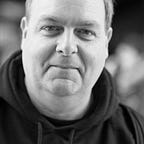Does Mastery Matter?
Firstly I have to mention the inspiration for this post is a recent(ish) episode of The Agile Pubcast where Geoff Watts and Paul Goddard (both in the UK) were joined by Chris Williams from Canada, so this one matched many of my interests 🙂
Chris mentioned sporting events to see in Toronto but he missed that the Wolfpack has joined the North American Rugby League and (hopefully) we’ll get to see some rugby again soon.
I will give him kudos for recommending the Loose Moose — I’ve worked close to it for a few years and have enjoyed many of the beers they have on tap. I’m definitely in for a meetup if Paul & Geoff make it to Toronto! ( Blanche de Chambly is fine but try adding orange juice to turn it into a beermosa!)
Their topic was “the concept of mastery as a discipline, and how failure is still a stigma”. Definitions of mastery include “full command or understanding of a subject”, “outstanding skill; expertise”, and “possession or display of great skill or technique”; in general it relates to knowing a subject thoroughly.
Personally I see it more as a journey than a destination — unless your chosen subject is quite tightly constrained then there’s probably always more to learn. In my experience, often when I think I’m close to reaching a peak I discover that it’s a false peak and the real peak is further, or sometimes that there are multiple peaks that I could strive for.
Whether it’s a journey or a destination, I believe mastery is essential. But does everyone need to master everything? No, of course not — for one thing, it’s not possible to master everything! Also, that’s part of the purpose of being a team — each team member brings their own strengths and interests. There used to be a popular concept of “T-shaped people”, meaning an individual with expertise in one aspect and a broad understanding of others, and then teams would be the sum of these Ts (and similar shapes).
Whenever I discuss mastery it’s a fairly safe bet that I will bring up one of my favourite films: Jiro Dreams of Sushi (2011). It focuses on 85-year-old sushi master Jiro Ono, his renowned Tokyo restaurant, and his relationship with his son and eventual heir, Yoshikazu.
I find it amazing to watch someone who has spent decades mastering his art and to hear him talk so profoundly about his approach: “You must dedicate your life to mastering your skill. That’s the secret of success and is the key to being regarded honourably.”
How do agilists and sushi chefs get better? Incrementally. 🙂 “I do the same thing over and over, improving bit by bit. There is always a yearning to achieve more. I’ll continue to climb, trying to reach the top, but no one knows where the top is.”
As a prog rock fan, one of the musicians I follow is Robert Fripp (of King Crimson) and despite being recognised as a great guitarist he still practices for multiple hours every day. (Here’s a recent video clip of him talking about practice.)
I believe it’s important to take pride in what you do, and that means not just wanting to be good but wanting to improve. Those improvements often don’t come easily, and that’s where the discipline comes in — no-one can make you better if you don’t want to improve, so start by identifying the area(s) you want to master.
Watching the F1 Grand Prix this morning was a reminder that being at the pinnacle of motorsport requires lots of practice; repeatedly rehearsing for various situations (e.g. a pit stop) is how teams build mastery and resilience.
It’s also interesting to hear the drivers talk about learning from their experiences; they focus on finding something which can be improved for next time, not wallowing in how they failed. They study how a problem occurred, identify the root causes, decide what to change, and then implement it. With minimal testing time between races, F1 is like testing in production — a mistake can be expensive so you try to minimise the risk but when something goes wrong (because eventually it will!) you make sure to learn as much as you can.
When I see failure being stigmatised, it’s often down to a misunderstanding of how we work. We cannot be right 100% of the time, so we try to reduce the risk by working in teams (“two minds are better than one”) and making small experiments. The evaluation of an experiment should show the hypothesis is accepted or rejected — the experiment isn’t a failure.
For example, if an online retailer were to propose that changing the “buy now” button to red would result in more sales, then they could conduct an experiment. The result might be that it does show an increase in sales; alternatively, it may show no increase. That is not a failure — it is a new piece of information. If the “no increase” outcome is called a failure, then we will end up demotivating the team and killing creativity.
Here’s an experiment to try: if we refer to the outcome of experiments as “discoveries” rather than “failures” then we will see more enthusiasm for conducting experiments and that will lead to a better product and a happier team.
Originally published at http://torontoagilecoach.ca on April 18, 2021.
